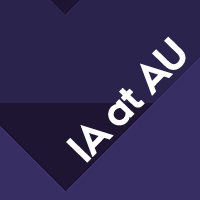New organisation of institutional accreditation at AU
Since the summer holiday the task of institutional accreditation at AU has been reorganised. It’s now being handled by a programme group anchored in the administrative division known as “Education”. The aim is to ensure that the work involved in connection with the quality system of our degree programmes should take place in close dialogue with the other development initiatives dealt with by this division, as well as ensuring that it continues to be anchored in our ongoing operations even after the work of the programme group ends.

A new Act on accreditation came into force on 1 July 2013, as a result of which institutional accreditation is to replace the accreditation of individual degree programmes. The work done at AU between now and 2016 focuses on ensuring that at the time of application we already have well-defined and well-documented quality processes based on a joint AU foundation – and not least that these processes are perceived as being relevant at our faculties and help to develop the quality of AU’s degree programmes.
“Institutional accreditation is a complex task in an educational institution of AU’s size. Success depends on close interaction between the people involved at many different levels. The task will have to be done at the same time as a range of other major tasks such as the study progress reform and the rescaling of our degree programmes. We have decided to locate the project coordination of institutional accreditation in the AU Studies Administration Secretariat with a view to creating links with other efforts in this area and ensuring the best possible framework for the quality work of our faculties,” reports Kristian Thorn, who is the deputy director of the administrative division concerned and the man responsible for institutional accreditation.
Best practice is what we need
One of the tasks of the programme group involves coordinating the work across our faculties and ensuring the link between AU’s overall quality policy, local quality practices, and all the many cross-disciplinary activities in the administrative division called “Education”. This will help the programme group to identify and gather knowledge about best practice, and to use the experience gained in our future operations. The group will also draw up a self-evaluation report for the Danish Accreditation Institution, and collect the required documentation and knowledge in this connection.
“Institutional accreditation is not about inventing a new quality practice at AU. But we do need to have a clear idea about our current practice and collect documentation about it. In some areas the existing quality work will be supplemented by new joint processes to comply with the new demands from the accreditation institution. For instance, this applies to the in-depth evaluations of degree programmes carried out once every five years. These steps will be designed to ensure that they can contribute new qualitative aspects within our organisation. I think it’s important to underline that the quality of our degree programmes is already high, so it’s all about making our good practice more visible with a view to spreading it throughout the organisation,” says Berit Eika, who is the pro-rector with overall responsibility for the quality of degree programmes at AU.
